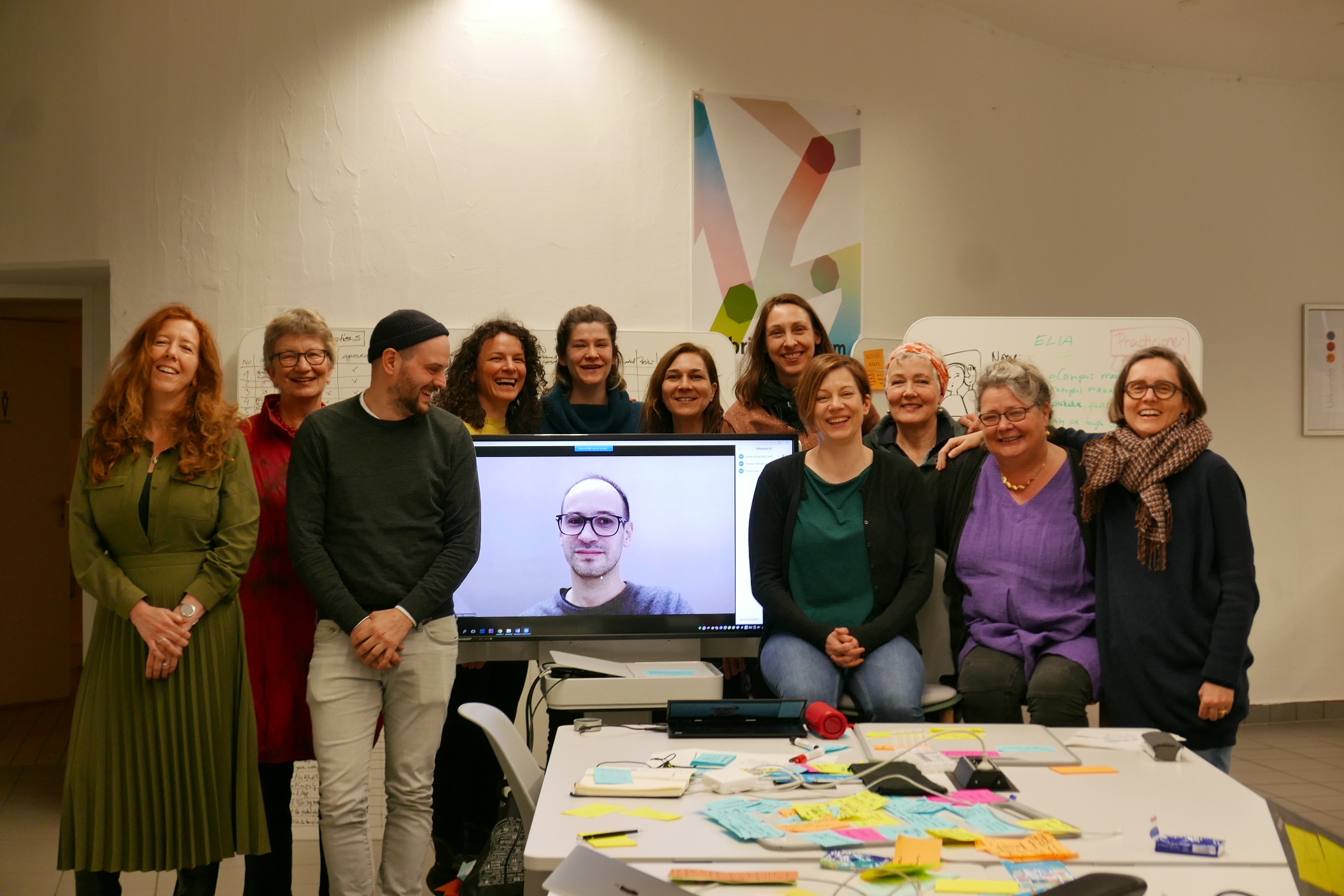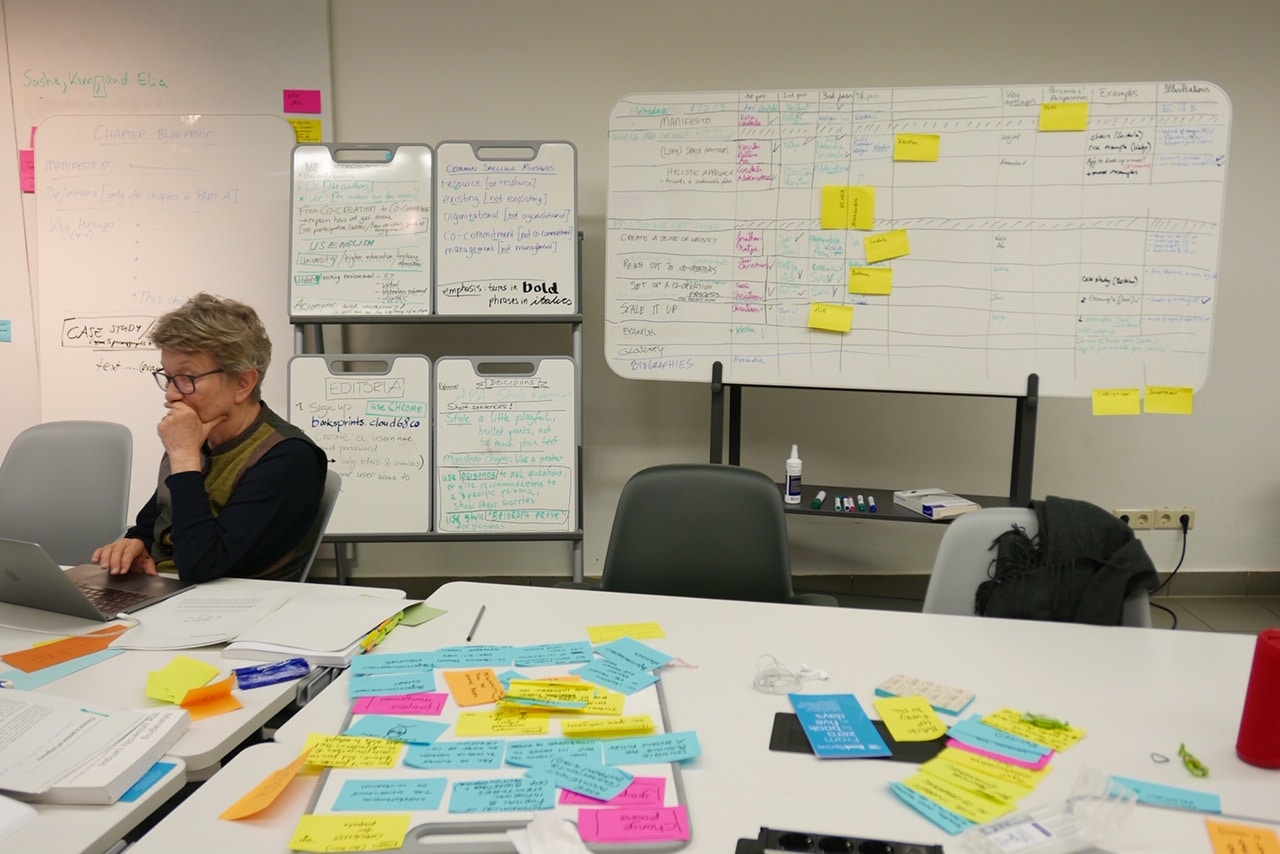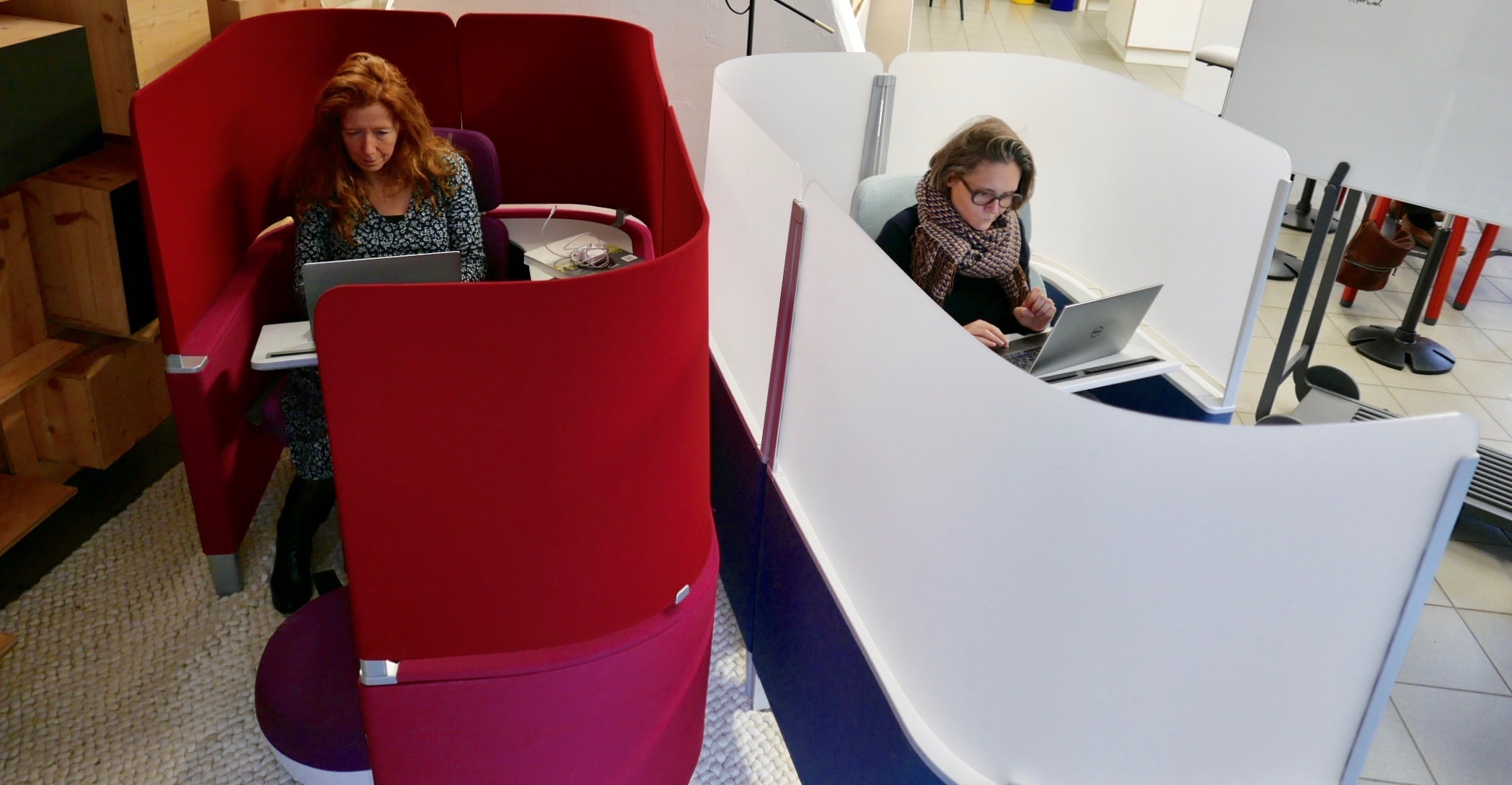A Book Sprint to reshape learning spaces
A Book Sprint to reshape learning spaces. This Book Sprint undoubtedly had a series of particularities. It is rarely that we get the chance to do a Book Sprint in Berlin, our headquarter’s town. An even bigger exception is that this book already had a publisher before a single word was written! Waxmann Verlag, German publisher focused on specialist literature for humanities and social sciences, agreed in advance on publishing the book these experts intended to write under the Book Sprints method… and here it is! Only 3 months after the publication, “Hybrid Environments for Universities” had impressive 1500 downloads only from Waxmann Verlag’s website. Adding to the incredible publishing speed, we had an outstanding work space setting with various materials and furniture. Finally, it was our first experience with a remote participant co-authoring a Book Sprint.

the Book Sprints Berlin team with the group of authors at the end of their Book Sprint. Photo credits: Elisa Cucinelli
We gathered in the beginning of March at the Hybrid Lab of TU Berlin – Technische Universität Berlin – with a team of architects and academics to write a book intended to be a manifesto on a very important topic. The guiding question to the reflections was “Which organisational structures and processes at universities support a strategic and innovative campus development?”. Being in Berlin, we took the opportunity to integrate our facilitators-in-training, Karina Piersig and Juliana Secchi. They joined this Book Sprint lead by our CEO and facilitator Barbara Rühling, and had the chance to progress yet more in their trainings towards becoming Book Sprints facilitators.
The threat of COVID-19 was starting to get more prominent around the beginning of March, so one participant had to cancel his travels. Nonetheless, we managed to include him virtually in the different phases of the process, and he gladly is one of the authors of this book. This was our last onsite Book Sprint for the next months ahead and it was a valuable experience, as we are now facilitating online Book Sprint – Red Hat and WWF happened in April – in response to the worldwide travel restraints and healthcare recommendations due to the virus pandemic.
The co-authorship of a remote participant was made easier by the fact that we relied on overall great resources onsite, on this particular case, wifi connection and electronic devices. The participants had at their disposal different writing materials and tools, to moveable furniture and spaces to come together and to break up in smaller groups or individually. Such materials and furniture were provided especially for TU Berlin’s Book Sprint by Steelcase, world pioneer company for work furniture and space solutions.

adaptable furniture and plenty of surfaces to work on. Photo credits: Juliana Secchi

working furniture designed for some alone production time. Photo credits: Juliana Secchi
Being most of the authors coming from architecture background, the book had to integrate many visual concepts and images that could translate the experience and vision of the group on the topic. Our remote illustrators worked intensely to deliver over 100 illustrations – our record so far! – other than proposing several cover options that were analysed and voted by the authors.
The hard work of all involved turned out into a beautiful and comprehensive book. We are looking forward to seeing it published, and to work with TU Berlin again in the near future.
